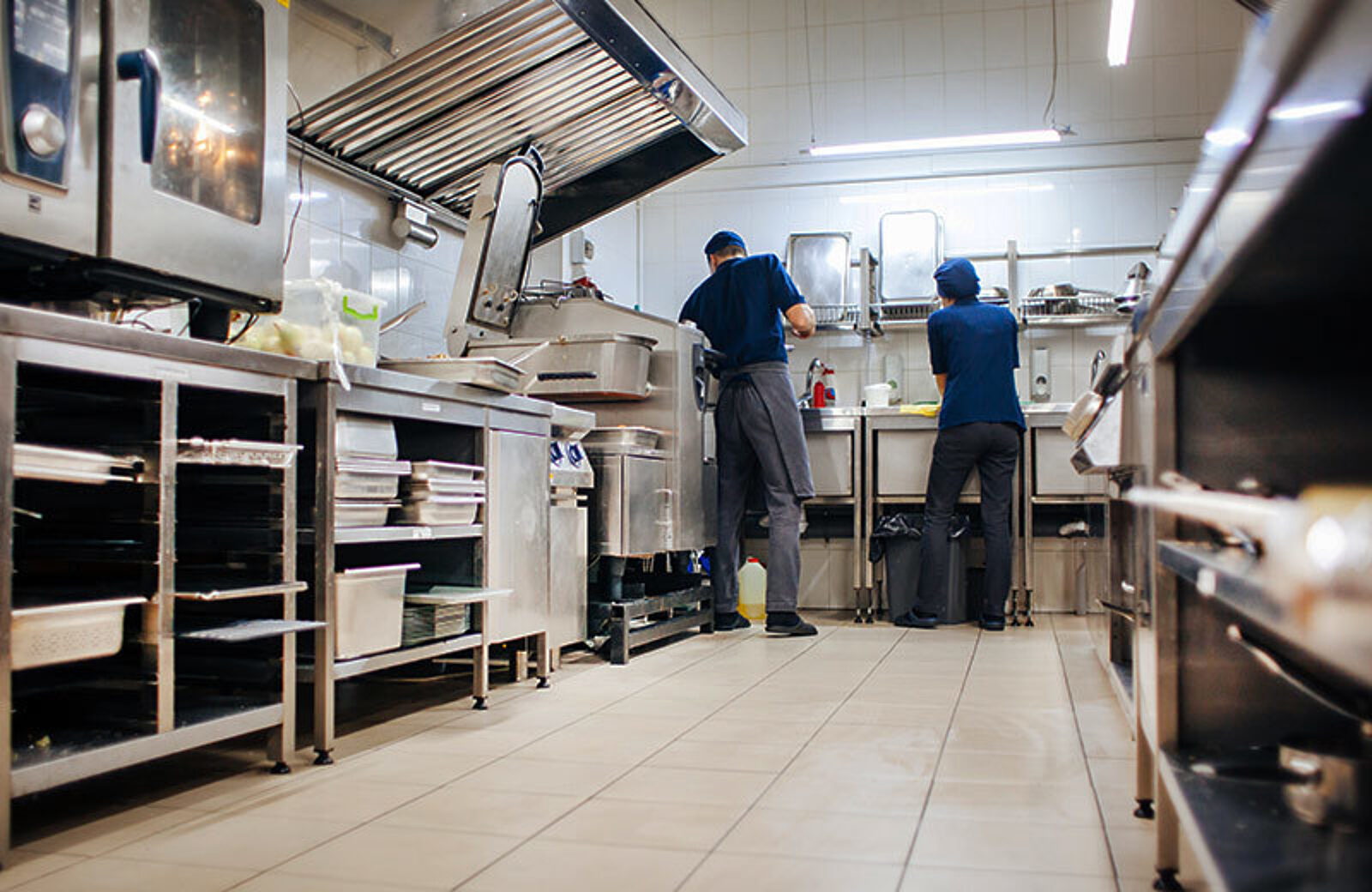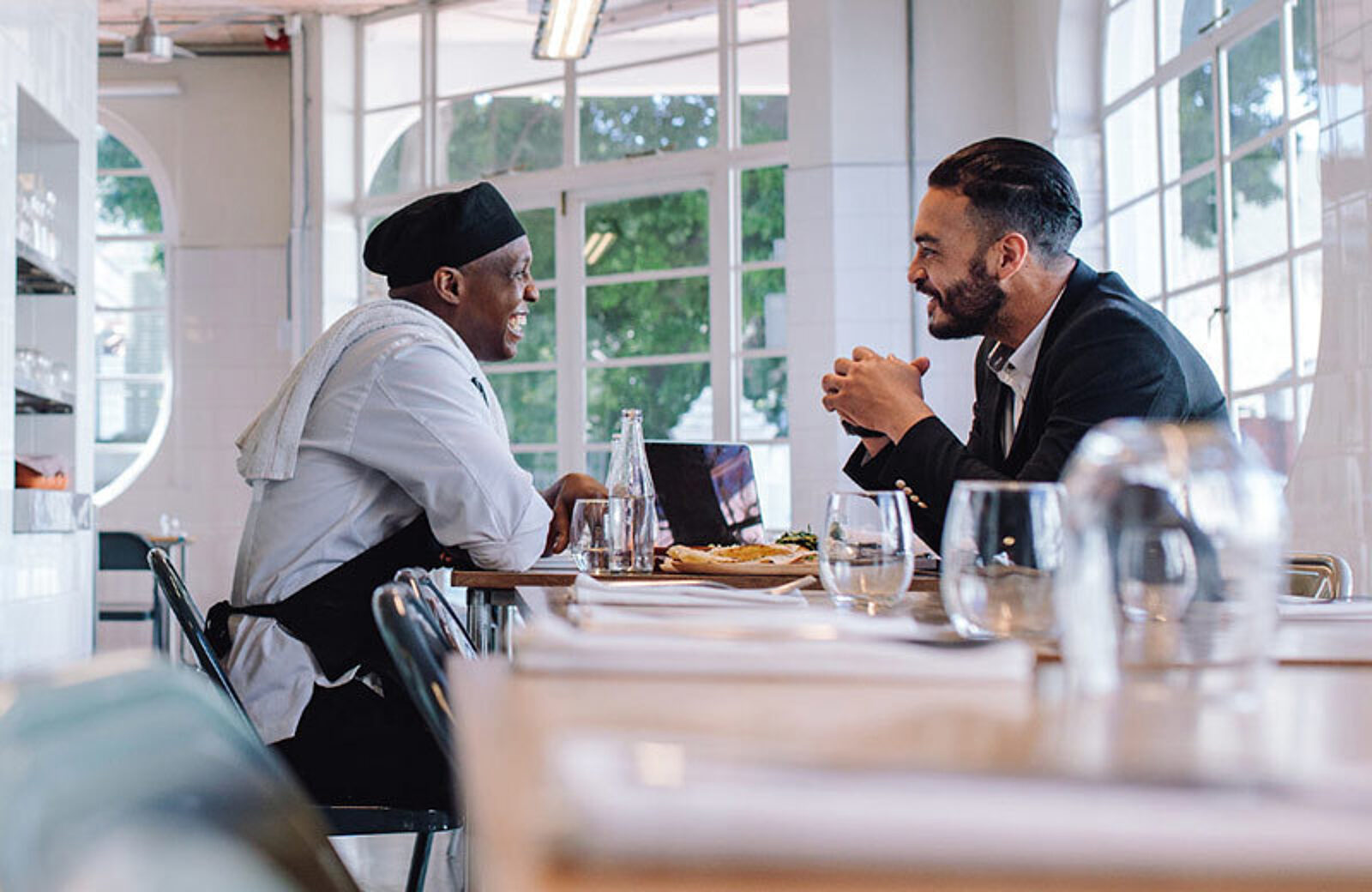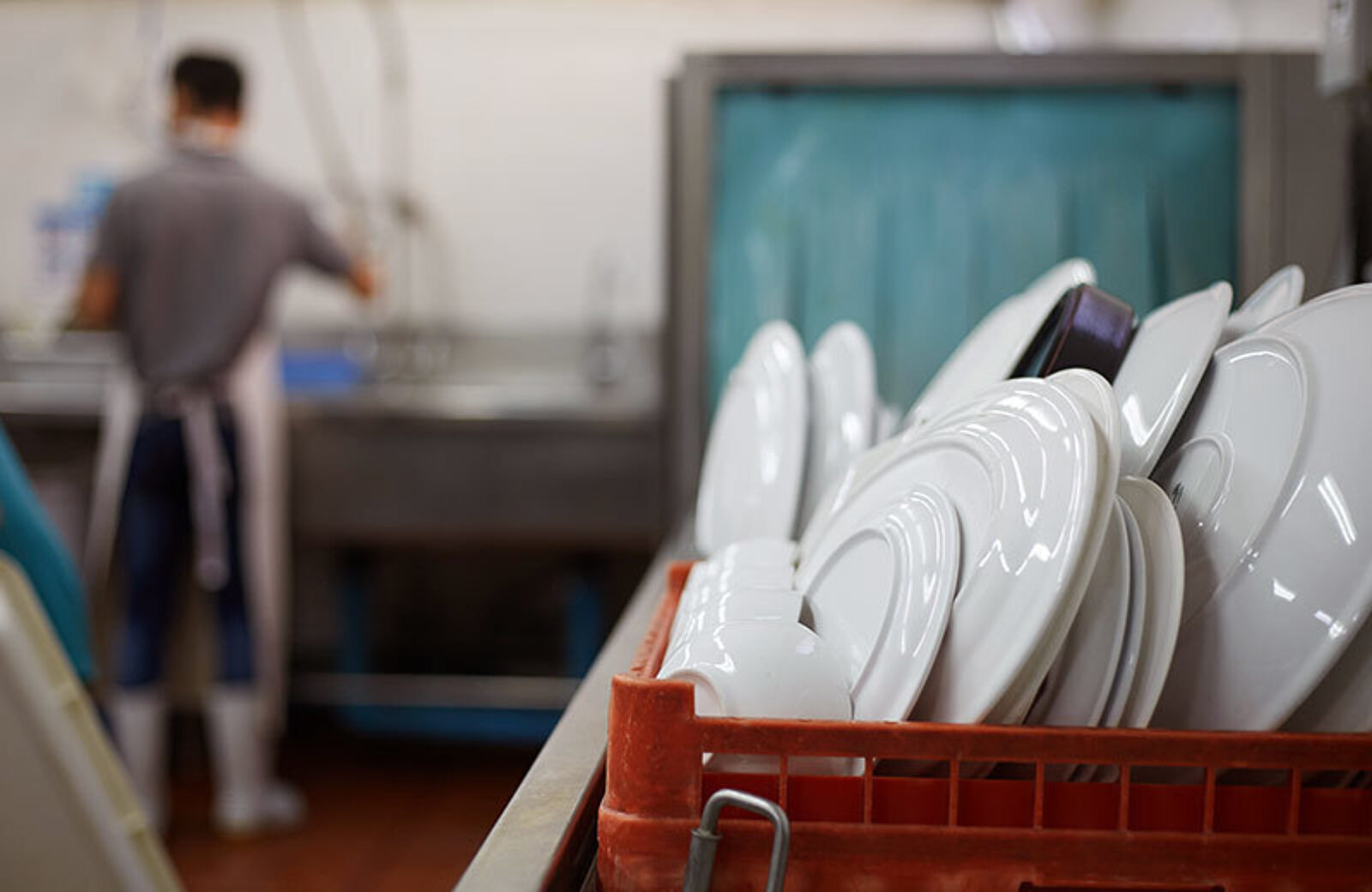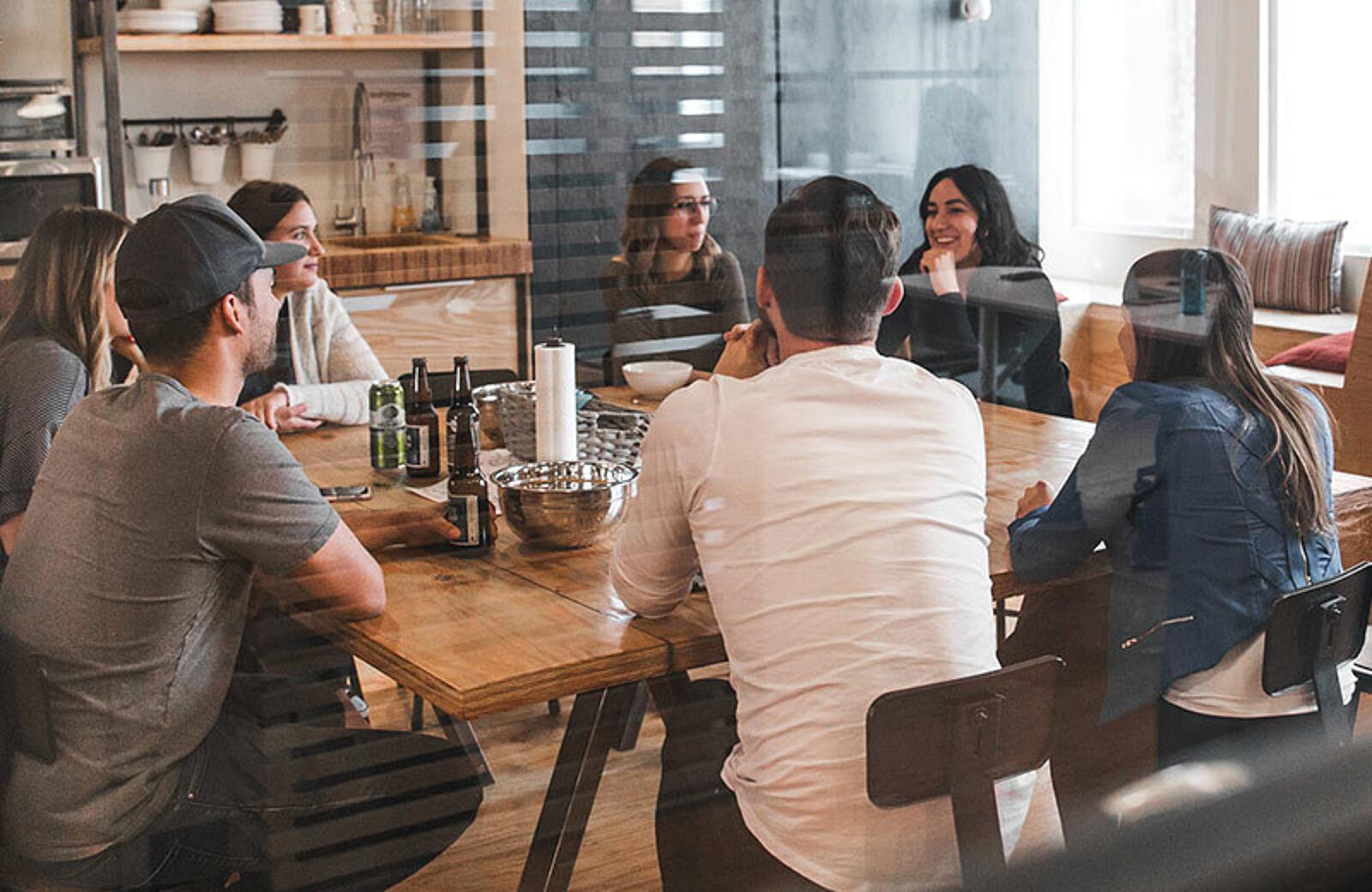How to Take Care of Your Staff During a Health Crisis

Chelsea VerstegenAuthor
This article was last updated on January 10, 2022.
Omicron has put restaurateurs across the country right back in the thick of it. Even in the third calendar year of COVID-19, it’s as difficult as ever to gauge how restaurants will be impacted over the coming months.
Projections from the COVID-19 Scenario Modeling Hub show Omicron cases may peak by the end of January 2022, with some states peaking in early February.
Many restaurants are weighing proof-of-vaccine mandates, including boosters, for dine-in guests to protect employees and combat the spread. As a snapshot of the nation, some Boston-based restaurants are trying to balance staying open to support employees while remaining diligent about worker health.
There are no easy answers in this reality. The only certainty is that as we continue through this health crisis, restaurant workers will continue to need support.
Here are some ideas to provide help for restaurant workers and let your staff know you’ve got their back during a health crisis.
Restaurant Reopening Checklist
Learn how to approach reopening your restaurant during COVID-19 with this 78-item checklist.

1. Don’t Require a Doctor’s Note (or Negative Tests) for Staff Who Call in Sick
When there’s a health crisis like COVID-19, doctors’ offices are flooded with patients. For this reason, those with mild symptoms are often discouraged from visiting the doctor to make sure those with severe symptoms or people belonging to high-risk groups can be seen, tested, and treated.
Give your staff the benefit of the doubt when it comes to calling in. Don’t make sick employees prove they’re sick, especially because it might be impossible to do so. If staff are feeling ill, make sure they’re staying home.
Early on in the pandemic, Gary Ward, the owner of Scoot's BBQ and Olivia's Restaurant in Gloucester, Virginia, talked with his team about making small changes to protocol, such as not requiring doctors' notes.
"We certainly are going to be a little more relaxed than what you normally would be in the business. Since there's an expectation that business is potentially going to slow down some, there may be a natural need for some people not to come in. But beyond that, we're definitely having a higher level of sensitivity and acceptance of that."
Doctor’s visits aren’t cheap, neither are COVID tests (if you can even find them!). Employees are already missing out on expected income if they’re calling out. You’re compounding that by making them produce doctors notes or COVID tests. Cut them a break and take their word for it.
2. Communicate Procedures and Updates to Your Employees
Everyone wants to stay informed during a health crisis. Communicating regular updates to your staff keeps everyone calm and creates trust among your employees.
Let your staff know that you’re keeping tabs on the situation and following CDC guidance and recommendations. Because different news outlets might have conflicting statistics and advice, rely on authoritative sites — like the CDC and your state’s health department — for accurate information. Consider including a two-minute daily update on the situation in your pre-shift meetings.
Gary's restaurants have no managers, so the owners and staff are a tight-knit group. They are as transparent as possible with their employees because they view each other as family.
"A lot of what we've done is just try to play almost that parent role and we've tried to give our employees some comfort and make them aware of what we think is potentially coming. You know, we may see business slow down. But we are going to do our best to keep everyone on board and working and find ways for them to make money." This level of transparency has put the employees at both Scoot's BBQ and Olivia's Restaurant at ease that they are constantly being considered.
Additionally, clearly outline your benefits to your employees, and even give a refresher course if necessary. Let them know what options they have at their disposal — whether it be healthcare, paid sick leave, paid time off, or any other benefit — so they don’t feel left in the dark.
3. Offer Paid Sick Leave and Tell Sick Employees to Stay Home
Paying your employees sick leave when they’re out of commission can make all the difference in your staff’s wellbeing and tenure at your restaurant. If paid sick leave is not a state requirement or you’re not currently offering it, now is a good time to consider making it work. If you have to increase your prices to do it, so be it - explain the change to your customers in a newsletter or on the menu itself, and be honest about how you’re trying to create a safer and more supportive work environment, which costs money to do.
Many hourly employees are still navigating decisions about going into work while ill or losing out on pay. If a sick employee opts to come into work — which one in five food service workers have admitted to doing in the past year, according to the US Centers for Disease Control — they’re putting the rest of your staff and your guests at risk.
However, if they decide to stay home without pay, they’re likely going to struggle to make ends meet. By implementing a paid sick leave program, you’re making sure your team doesn’t have to decide between endangering others and earning a steady paycheck.
Early in the COVID-19 pandemic, Darden Restaurants — the parent company of Olive Garden, Longhorn Steakhouse, and Cheddar’s Scratch Kitchen — chose to accelerate their rollout of paid sick leave to 180,000 employees who previously did not receive it.
Reliable work attendance is a standard restaurant expectation. By now in this saga, you’ve hopefully implemented some protocol and flexibility for your staff.
And it’s not just mega restaurant chains that are managing to offer this critical benefit. As the team from Tacolicious, in San Francisco, said in a customer newsletter early in the pandemic, “All employees who cough or look at us sideways are being sent home with paid sick leave, which is our practice anyhow.”
Your expectations for work attendance should revolve around the health and wellbeing of your employees, so don’t allow sick employees to come to work.
4. Promote Mental Health
Safe to say COVID fatigue and burnout is real. This heightened stress weighs on all of us differently. Offering your staff assistance to maintain their mental health shows that you’re putting them first.
The World Health Organization provides resources that detail the do’s and don’ts of coping with anxiety around the COVID-19 outbreak. Consider hanging this poster in your kitchen where all staff can access it.
You can consider subscriptions for your staff to mindfulness apps that help with anxiety. Headspace, AnxietyCoach, and Happify are all ADAA-reviewed mental health apps that can help in a variety of ways.
There are also companies designed specifically with employees in mind, like Modern Health, that offer in-person or over-the-phone support through therapy, digital resources, and certified coaches.
Lastly, make sure the positive and supportive culture at your restaurant is maintained, even through the chaos. Make sure your employees know you support them and that your door is always open. A lot of the stress will be minimized if you can keep a steady handle on the environment inside your doors.
5. Provide Leave for Parents and Caregivers
Families are again having to make decisions around missing work to care for children or parents.
As the health crisis continues, many schools are going back to hybrid and remote learning. And while Omicron cases seem to be milder, older adults and those with serious medical conditions are still at a higher risk for contracting COVID-19, so it’s possible that some members of your staff may have to take time to care for their loved ones. It’s a good idea for you, as well as your staff, to get familiar with the Family and Medical Leave Act.
According to the Department of Labor, Family and Medical Leave Act (FMLA) allows for certain employees to take up to twelve weeks of unpaid, job-protected leave over a twelve month period. If an employee qualifies for FMLA — if they’ve been at your business for at least 12 months, if they’ve worked at least 1,250 hours over the past 12 months, and if your restaurant employees 50 or more employees within 75 miles — you’re required to offer FMLA for any of the following reasons:
For the birth and care of the newborn child of an employee
For placement with the employee of a child for adoption or foster care
To care for an immediate family member (spouse, child, or parent) with a serious health condition or
To take medical leave when the employee is unable to work because of a serious health condition
If you have staff members who need to take care of their family but do not qualify for FMLA, try working with your employees to develop a game plan — consider scheduling them fewer hours, giving them a flexible schedule, or offering extended time off.
If an employee has to care for a family member, it’s likely that the rest of your staff will be willing to pick up any slack, especially if your restaurant team values treating one another like family.
Reminder: always check with your local laws and consult with a lawyer, accountant, or benefits specialist to help you through this process.
6. Insist on Cleanliness and Encourage Mask Wearing
Cleaning your restaurant is a must regardless of the situation. Those cleaning procedures need to remain ramped up as we continue to navigate Omicron and any subsequent waves.
Insist that staff wash their hands often and cover their mouths when they cough or sneeze, ideally into the crook of their elbows and not into their hands. Make sure they’re vigilantly cleaning your kitchen and dining room more than usual. Install hand sanitizing stations for customers and employees — both in the front and back of house.
Masks continue to be an essential part of keeping staff and customers safe, so consider encouraging or insisting that they are worn (and worn properly) at all times. Providing high quality masks to your staff is a great way to ensure compliance here, because cheaper masks and cloth masks are more likely to slip out of place.
Consider installing sanitary door openers on bathroom doors and in your kitchen to avoid contact with door knobs. Use disposable sanitizing wipes to clean menus, tables, and chairs between customers, and clean door handles regularly.
Thoroughly sanitize your POS system, handhelds, kiosks, and any other technology that employees and customers are frequently touching.
Lastly, make sure your servers, hosts, and kitchen staff are avoiding handshakes, high-fives, or any other hand-to-hand contact. Come up with other ways of congratulating your employees to keep your restaurant’s morale up.
A lot of what we've done is just try to play almost that parent role and we've tried to give our employees some comfort and make them aware of what we think is potentially coming. You know, we may see business slow down. But we are going to do our best to keep everyone on board and working and find ways for them to make money
Gary Ward
Owner/Operator of Scoot's BBQ and Olivia's Restaurant
7. Use Your Tech to Keep Staff Safer
Using your technology to make up for a smaller staff or slower shifts helps your employees big time.
Self-ordering options are critical tools for restaurants to navigate fewer staff members and mitigate contact with customers. Order & Pay at the Table is one such option. It allows customers to use QR codes and their mobile devices to place orders and complete payment on their own.
Customer-facing kiosks are another option for customers to do more on their own. You can use these to take customer orders and payment without the need of a host or cashier — and again, keep those kiosks clean.
Handheld POS systems can make order taking and payments more seamless, which means you can get by with fewer employees if some are out sick.
Contactless payments can also reduce the risk of your staff’s contact with dangerous germs and bacteria, as customers simply tap their cards or phones to pay.
There’s more you can do off-site, too. Here are some Toast partners who can help you take care of your team:
AP Intego - A small business insurance company that allows you to offer your employees insurance at a reasonable price.
Chowly - Integrates your POS with third-party online delivery platforms, which can help lower staff count when needed, so if you have someone call in sick, you’ll be okay.
7shifts - Simplified scheduling to work around call-ins and give employees an easy-to-use app to manage their schedule from anywhere.
Maintaining constant communication with staff during this time is key, even if the news is bad. They will trust and appreciate you more than ever. We're seeing a 35% increase on the messaging platform within 7shifts—an indication of how critical team communication is in any health crisis. These are operators that care deeply about their employees. When the industry gets back to normal, staff will remember how you, as a manager, navigated through a very tough situation. Do not underestimate the opportunity you have to build loyalty through frequent and honest communication.
Jordan Boesch
CEO of 7shifts
Whether you’re preparing for flu season or the Omicron wave of COVID-19, keeping your employees at the forefront of your plans is an important way to show them you care about their health and wellbeing. By encouraging staff to stay home when sick, giving them resources to maintain their health, and communicating clearly, you’ll keep your staff and customers healthy. And don’t forget to frequently check in with the CDC for updates on the outbreak and how it can affect your restaurant.
Related Opening a Restaurant Resources
Is this article helpful?
DISCLAIMER: This information is provided for general informational purposes only, and publication does not constitute an endorsement. Toast does not warrant the accuracy or completeness of any information, text, graphics, links, or other items contained within this content. Toast does not guarantee you will achieve any specific results if you follow any advice herein. It may be advisable for you to consult with a professional such as a lawyer, accountant, or business advisor for advice specific to your situation.




